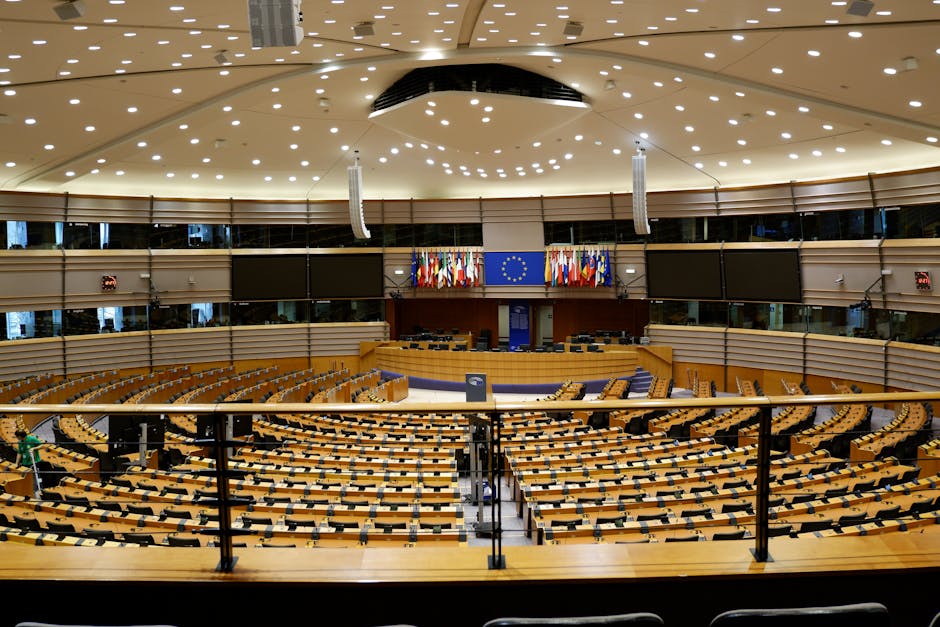The contemporary political landscape is increasingly characterized by a stark divide, a deepening chasm between opposing viewpoints. This phenomenon, political polarization, is not a fleeting trend but a multifaceted force with profound and enduring implications for the very fabric of democratic societies. Comprehending these long-term effects is crucial for navigating the complexities of the 21st-century political arena.
A critical aspect of this polarization is the erosion of shared societal values and norms. Historically, democracies have thrived on a degree of consensus around fundamental principles. However, as partisan divides deepen, these shared foundations weaken, making collaborative problem-solving more challenging. This lack of common ground translates into legislative gridlock, as compromises become increasingly difficult to achieve, obstructing crucial policy initiatives aimed at addressing public concerns. Consider issues like climate change, healthcare reform, or economic inequality deeply entrenched partisan positions often render effective action impossible. This impedes progress on vital societal issues, potentially leading to long-term societal harm.
Beyond legislative stagnation, political polarization’s impacts extend into the realm of public discourse and societal interaction. A climate of animosity and distrust permeates public conversations, hindering rational debate and open dialogue. This hostile environment fosters a culture of negativity, where opposing viewpoints are not just dismissed, but actively demonized. Social media platforms, while facilitating communication, have also become breeding grounds for echo chambers and the reinforcement of pre-existing biases. Individuals are increasingly exposed only to information that confirms their existing beliefs, further solidifying partisan divides. This creates a dangerous feedback loop, amplifying the problem and making reconciliation even more distant.
The consequences of this fractured environment ripple through various aspects of governance and civic life. Citizens’ trust in government institutions including the judiciary, legislature, and executive dwindles as perceived bias and partisanship take center stage. This erosion of public trust can lead to widespread disillusionment and apathy, diminishing civic engagement and participation in democratic processes. Fewer individuals may vote, participate in community initiatives, or feel invested in the future of their societies. This disengagement, in turn, weakens democratic processes and creates an environment susceptible to manipulation and extremism.
Furthermore, the long-term effects of political polarization are manifest in the deterioration of social cohesion. A nation divided along partisan lines experiences a decline in social capital the networks of relationships and trust that bind communities together. Individuals may become less willing to interact with those holding different political views, leading to a breakdown in social connections and a sense of isolation. This fracture can lead to a climate of suspicion and fear, impacting interpersonal relations across all sectors of society.
This societal divide translates to the economic sphere, as well. Reduced trust in government and institutions often inhibits investment, discourages innovation, and may even stunt economic growth. Businesses and investors are wary of a climate characterized by political instability and uncertainty, leading to a hesitant approach to growth-oriented ventures. A lack of collaboration across parties can lead to policies that benefit specific interests at the expense of the common good, resulting in economic disparities that exacerbate existing societal inequalities.
Furthermore, polarized political environments can create vulnerabilities in national security. The ability to forge common ground on defense spending, international relations, and intelligence gathering is hampered when parties are locked in a perpetual state of opposition. A lack of consensus on critical issues can jeopardize national security by hindering effective responses to global threats. This applies to everything from military preparedness to cybersecurity to responding to global pandemics.
Addressing these multifaceted challenges requires a multifaceted approach. Education plays a crucial role in fostering critical thinking, media literacy, and empathy. Promoting respectful dialogue and interaction between individuals with differing viewpoints is essential. Political institutions must strive to create more inclusive spaces for diverse voices and opinions. Finally, a renewed focus on common values and shared goals even those that differ in specifics can help bridge the gap between political parties and foster greater understanding.
Ultimately, reversing the negative impacts of political polarization necessitates a collective effort involving citizens, political leaders, educational institutions, and the media. By actively working to promote understanding, bridge divides, and foster a culture of respectful dialogue, societies can begin to mend the fractured fabric of their political systems. This collective effort will not only enhance the functionality of democracy, but it will also contribute to a more harmonious and prosperous future for all.






